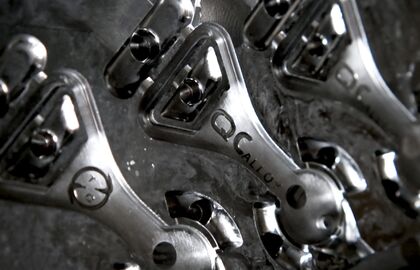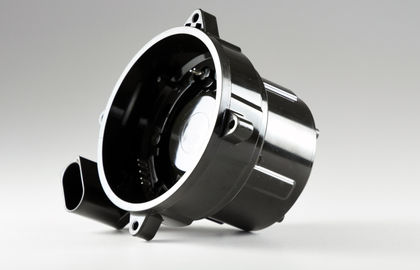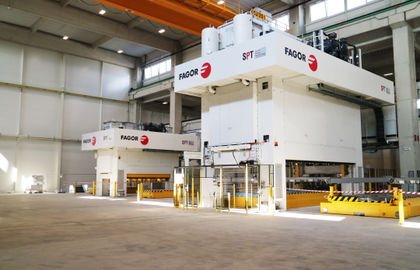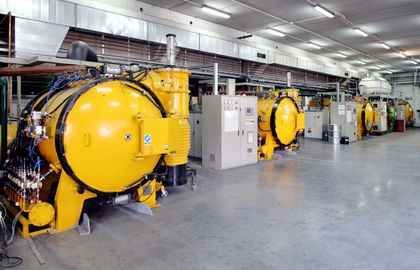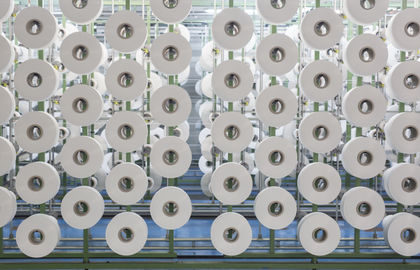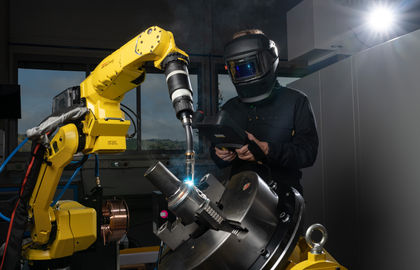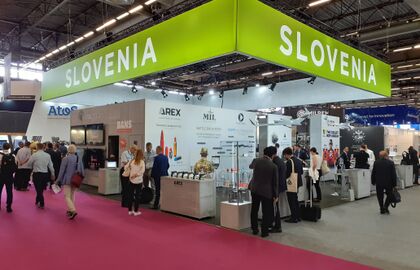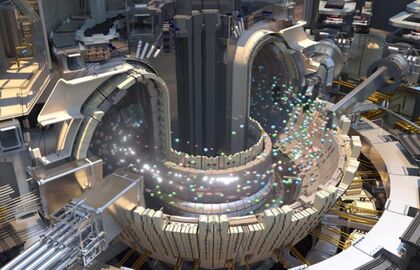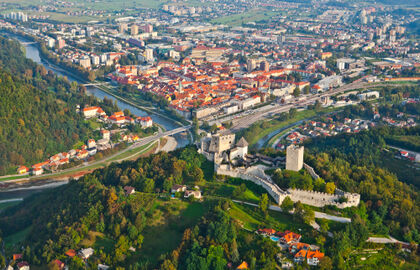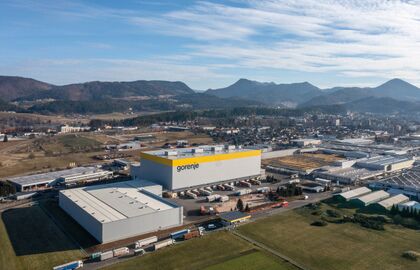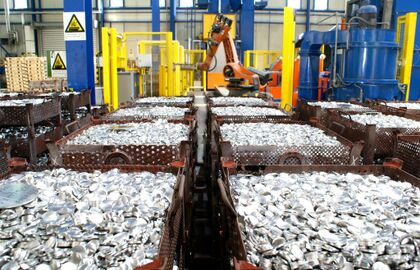Slovenia’s metal processing and machinery industry today is a far cry from its medieval beginnings. It is highly specialized and focused on high value-added niche products. Some of the specialized processed metals and alloys for the most demanding applications are being developed and produced in Slovenia. Toolmaking and machinery production is moving away from the manufacture of single machines and more towards the engineering of complete, fully automated production lines.
Narrow niche specialization goes hand in hand with flexible production processes compliant with the highest standards. The metal processing industry is, together with machinery production, among Slovenia’s top exporting sectors and serves as a backbone to the automotive field, the nation’s most important exporting industry.
Metal processing is one of the fastest developing sectors of industry in Slovenia with a high growth of sales and value added. The value added per capita reached by the main players in the industry is among the highest in the field on a global scale.
Slovenia’s steelmakers are among the largest producers of stainless and special purpose steels in Europe. Their products are intended for the most demanding uses in aerospace, oil industry, and machine production. They include premium grade high temperature steels, super hardened steels and alloys, corrosion resistant steels stable in acidic or alkaline environments, or special electric steels used in the magnetic cores of transformers and electric motors.
Apart from high quality steels and aluminum in various forms, the industry also offers a wide array of metal products, from various castings for the automotive industry, to furniture fittings, office equipment, taps, hand tools, containers, kitchen sinks, and prefabricated metal buildings. Slovenian companies are the leading manufacturers of industrial knives for most demanding applications.
The forged precision parts made in Slovenia are used by the top car manufacturers. Slovenian made prefabricated metal buildings, metal facades and roofs are present all over the world. They are used in the buildings of major corporations like Coca Cola, DHL, Nestle, Airbus, and in London’s Heathrow airport.
The metal processing industry in Slovenia is characterized by intensive R&D, innovation, flexibility, quality, and efficiency. The country's leading aluminum producer is, for example, the world leader in low power usage during the electrolytic process and one of the three global leaders in electricity used per ton of produced aluminum. These achievements were made possible only by intensive research and innovation. R&D is often carried out in close cooperation between companies and their customers. The companies’ labs also carry out precise testing and quality inspection procedures. The industry has adopted the highest quality standards for their operations and processes. A high level of standardization does not, however, limit the industry’s flexibility: many Slovenian suppliers in the metal industry are able to offer tailor made products closely matched to the needs of their customers.
A strong metal industry is the foundation for well-developed machinery and toolmaking fields. Slovenia’s companies develop and produce machinery for various purposes, including metal processing, the food and beverages industry, pharmacy, logistics, woodworking, forestry, and agricultural machinery.
Some of the steel mills in Slovenia have been continuously operating for over 400 years. Hand tools production is based on a centuries old tradition of blacksmiths in the Pohorje area. The manufacture of turbines started 170 years ago. A longstanding tradition is not without importance even for the most advanced modern industries, as expert skills, work attitudes, and passion for precision often pass from one generation to another.
Today the industry is focusing on future solutions. Within the framework of the Strategic Research and Innovation Partnership MATerials as end PROducts (SRIP MATPRO), companies are jointly developing new materials for use in complex products with high value added and a lot of potential for positioning within global value chains. These solutions include new recyclable materials as a step towards a carbon neutral, circular economy.
The development of robots in Slovenia started 40 years ago with joint efforts by industry and Slovenia’s top scientific institutions, including Institute Josef Stefan, The Faculty of Electrical Engineering at Ljubljana’s University, and the then formed Institute of Robotics at the University of Maribor. Slovenian engineers played a pioneering role in the development of robotized palletizing and automated warehouses. A few years ago, Japanese robot makers chose Slovenia as their European base for production and development. Some of the most advanced industrial robots thus came from Kočevje, a small town in southern Slovenia. Another Japanese owned company in Slovenia produces robotized welding machines. Many smaller companies develop elements and solutions for automatized production lines, including software and building blocks for IoT. Slovenian toolmakers are increasingly shifting their offerings from “simple” tool production to the engineering of complete, highly automated product lines, including technical equipment and systems for monitoring and visualization of the items being produced.
